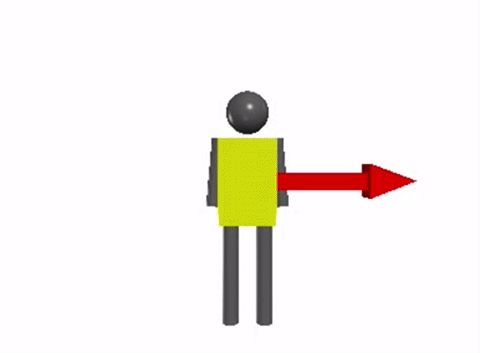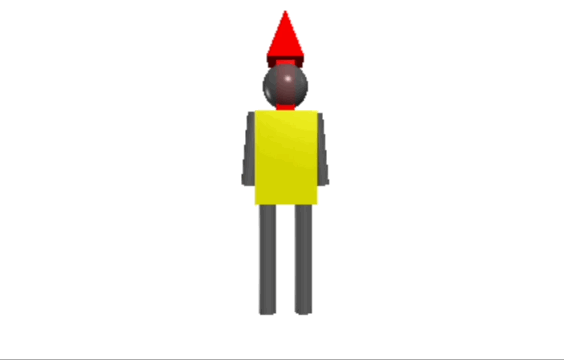Gymnastics is an extremely difficult sport, and not just extreme for Olympic athletes like five-time (so far) medalist Simone Biles. The physics is also quite challenging. Let’s consider something seemingly simple, like a flip.
There will be some version of a flip in all four of the women’s gymnastics events: floor, bars, vault, and beam. It’s one of the two types of rotations a gymnast can make midair. In physics terms, a flip is a head-to-foot rotation about an imaginary axis that runs through the gymnast’s hips. For the second type of rotation, a twist, imagine an axis that runs from their head to their feet.
Maybe it’s easier just to see them. These two animations were created in Python. (You can see the code here and here.)
Trinket via Rhett Allain
Trinket via Rhett Allain
A gymnast can actually perform both of these types of rotation at the same time—that’s what makes the sport so interesting to watch. In physics, we would call this type of movement a “rigid body rotation.” But, clearly, humans aren’t rigid, so the mathematics to describe rotations like this can be quite complicated. For the sake of brevity, let’s limit our discussion just to flips.
There are three kinds of flips. There is a layout, in which the gymnast keeps their body in a straight position. There is a pike, in which they bend at about a 90-degree angle at the hips. Finally, there is a tuck, with the knees pulled up towards the chest.
What’s the difference, in terms of physics?
Rotations and the Moment of Inertia
If you want to understand the physics of a rotation, you need to consider the moment of inertia. I know that’s a strange-sounding term. Let’s start with an example involving boats. (Yes, boats.)
Suppose you’re standing on a dock next to a small boat that’s just floating there, and isn’t tied up. If you put your foot onto the boat and push it, what happens? Yes, the boat moves away—but it does something else. The boat also speeds up as it moves away. This change in speed is an acceleration.




